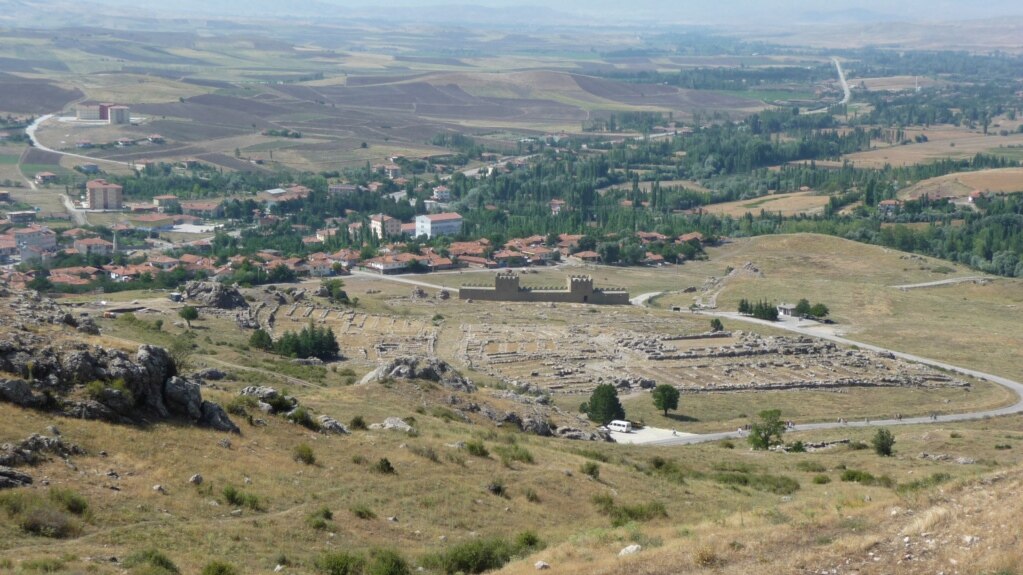Over three thousand years ago, several important civilizations in the Middle East and eastern Mediterranean collapsed or decreased in power. This event is called the Bronze Age collapse.
One of the strongest to disappear was the Hittite empire in what is now Turkey and parts of Syria and Iraq.
Researchers recently offered new ideas about the Hittite collapse. An examination of trees alive at the time showed three years of too little rainfall, or severe drought. The drought may have caused crop failures, hunger and political problems.
The Hittites had their capital Hattusa in Turkey’s central Anatolia. At the time, they were one of the ancient world's great powers. The Hittites became the main competitors of the ancient Egyptian empire during its New Kingdom period.
Sturt Manning of Cornell University was the lead writer of the research published in Nature. He said that in ancient times, the Hittites controlled a huge area for hundreds of years although they faced threats from neighbors and the difficulty of being in a dry area.
Scholars long have wondered what caused the fall of the Hittites and the collapse of other civilizations in Greece, Crete and the Middle East. Ideas have included war and climate change. The new study offers some new ideas about the Hittites.
The researchers examined long-lived juniper trees that grew in the area at the time and eventually were used to build a wooden structure about 2700 years ago. The structure is southwest of Ankara. It might have been the burial place for a family member of Phrygia's King Midas.
The trees offered a record of the climate at the time in two ways. First, there are the yearly growth rings in the trees. For example, narrow tree rings suggest dry conditions. Then, there is the ratio of two forms of carbon within the rings. The carbon forms show how the tree dealt with water availability.
Researchers discovered a slow change to drier conditions during a period about 3200 years ago. More importantly, both forms of evidence suggested three straight years of severe drought, in 1198, 1197 and 1196 BC. These years are the same as the known timing of the empire's collapse.
Study co-writer Brita Lorentzen of the University of Georgia said: "There was likely near-complete crop failure for three consecutive years. The people most likely had food stores that would get them through a single year of drought. But when hit with three consecutive years, there was no food to sustain them."
Lorentzen added, "This would have led to a collapse of the tax base...and likely a mass movement of people seeking survival.”
She explained that the Hittites did not have a port or other easy way of moving food into the area.
Hattusa, a city protected by a large, stone wall, was burned and abandoned. Texts written on clay tablets using the cuneiform writing common in the area did not report what happened.
It was a sudden end. Less than one hundred years earlier, the Hittites under king Muwatalli II and the Egyptians under pharaoh Rameses II fought the famous Battle of Kadesh in 1274 BC. The groups reached history's first recorded peace treaty.
Study co-writer Jed Sparks of Cornell University said: "I think this study really shows the lessons we can learn from history. The climate changes that are likely to occur for us in the next century will be much more severe than those the Hittites experienced."
Sparks added that these lessons create questions about our own time. “What is our resilience? How much can we withstand?"
I’m John Russell.

